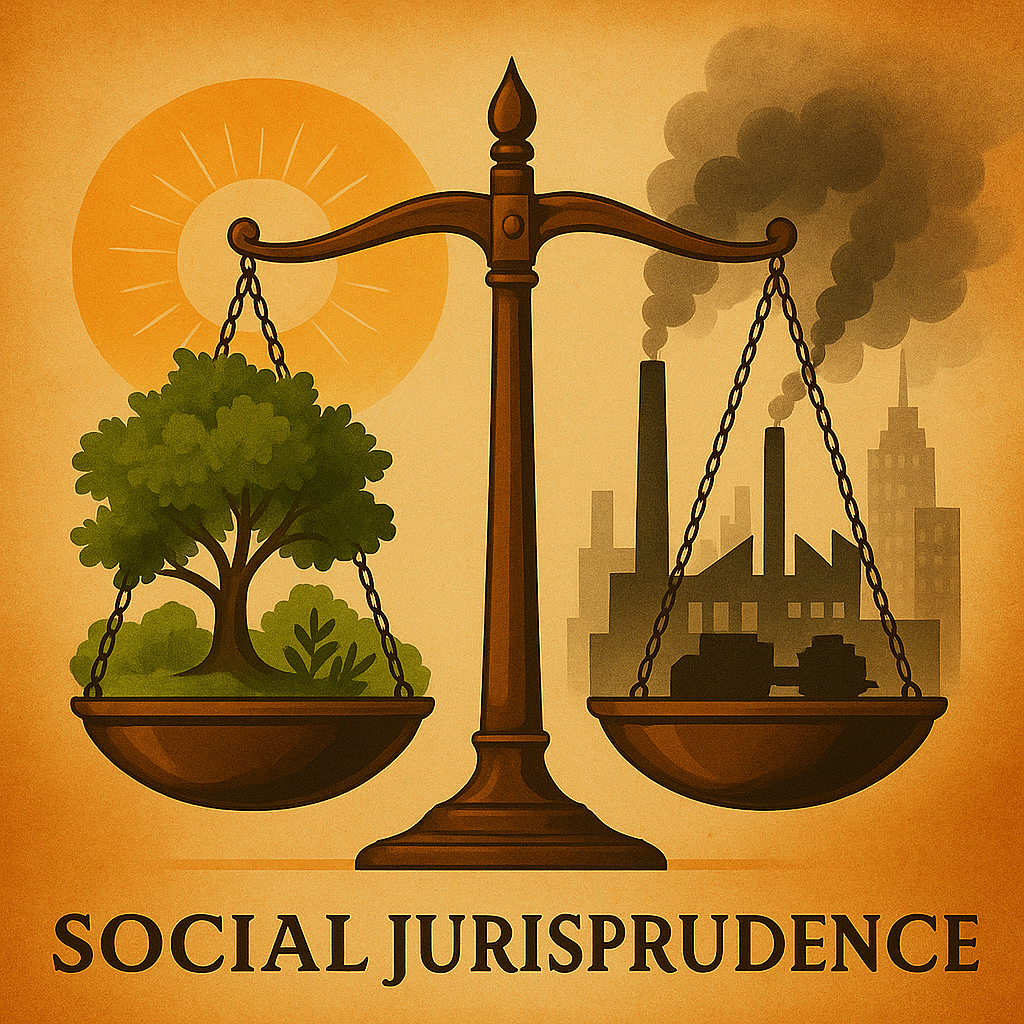Part 2: A conversation on Social Jurisprudence

Did you know that the law is more than a fixed set or rules?
Or at least, it can be.
I see the law as a living tool that shapes and responds to society. This is the central idea behind social jurisprudence: the philosophical idea that law should evolve to improve the human condition.
If we take this idea seriously, it challenges us to see the law not as static or bound by the past but as dynamic and adaptable. Lawyers, under this view, aren’t merely technicians applying old rules to new problems. Instead, they help guide the law to meet the changing needs of society—even if that means taking risks and loosening the grip of strict precedent.
Because I am currently in the United States, to further explain this theory, I’ll look at two important U.S. Supreme Court cases: one that embraces social jurisprudence and another, in my opinion, that moves away from it.
Griswold v. Connecticut (1965): Law as a Force for Social Progress
In Griswold v. Connecticut, the Supreme Court struck down a state law banning the use of contraceptives, creating a right to privacy in the process.
What’s notable is that the US Constitution doesn’t explicitly mention a right to privacy. Yet, the Court, through Justice Douglas’s opinion, recognized that such a right exists (implicitly) within the “penumbras” of several amendments.
Essentially, this decision shows the Court using broad interpretation to adapt the Constitution to modern social realities like contraception. By acknowledging rights not directly spelled out in the text of the constitution, the Court protected personal freedoms and laid the foundation for later landmark cases involving marriage equality, medical decisions, and bodily autonomy.
This is social jurisprudence in action: interpreting the law to advance human dignity and reflect contemporary values.
Dobbs v. Jackson Women’s Health Organization (2022): A Return to Tradition
Contrast that with Dobbs v. Jackson Women’s Health Organization, the 2022 decision that overturned Roe v. Wade and removed the federal constitutional protection for abortion access. In the majority opinion, one argument presented by Justice Alito was that the right to abortion was not “deeply rooted in the Nation’s history and traditions,” and thus did not deserve constitutional protection.
This approach reflects a stricter reading of the law, one rooted in the text of the Constitution and the nation’s historical practices. It is the opposite of social jurisprudence: rather than letting the law evolve with society, it asks society to conform to the historical understanding of the law.
Why This Matters
I find this argument troubling. If we restrict constitutional rights only to what is written in the text or present in history, what happens to the many freedoms we value today? The right to interracial marriage, same-sex marriage, and personal privacy—all these evolved through broad interpretations of the Constitution, not because they were clearly written in its original text or reflected the norms of the 18th century.
Conclusion
Social jurisprudence offers a way forward for a society that is constantly changing. By interpreting the law in light of present realities, courts can help build a more just and inclusive world. Without this approach, we risk losing many of the rights and protections that define life in modernity.
The law is definitely a dynamic tool that plays a huge role in shaping and reshaping our realities. Very insightful thoughts, and excited to read more!
Thank you Jaara. I love your engagement with this my (for now) little project